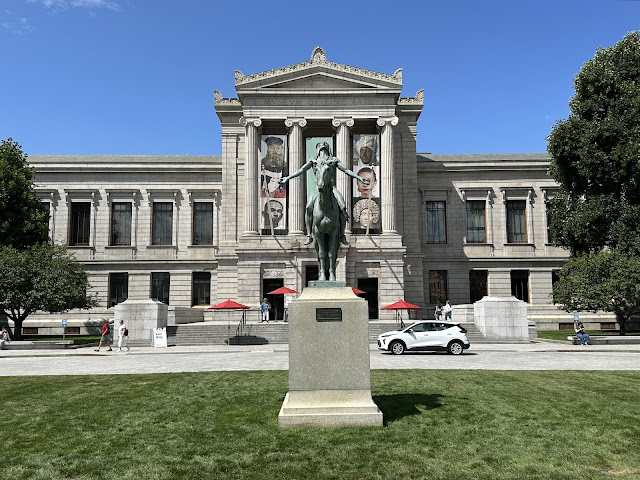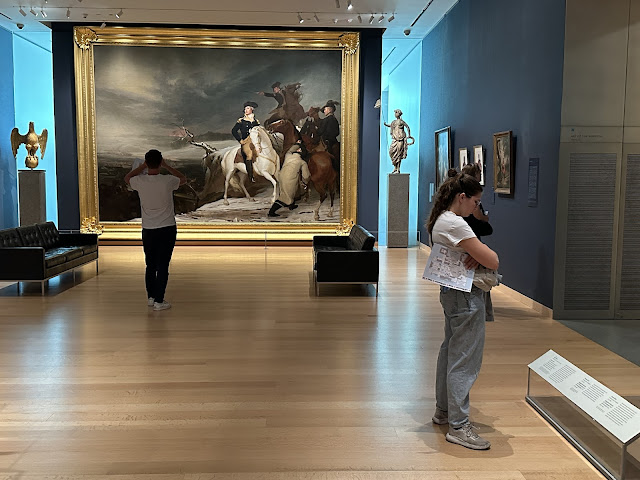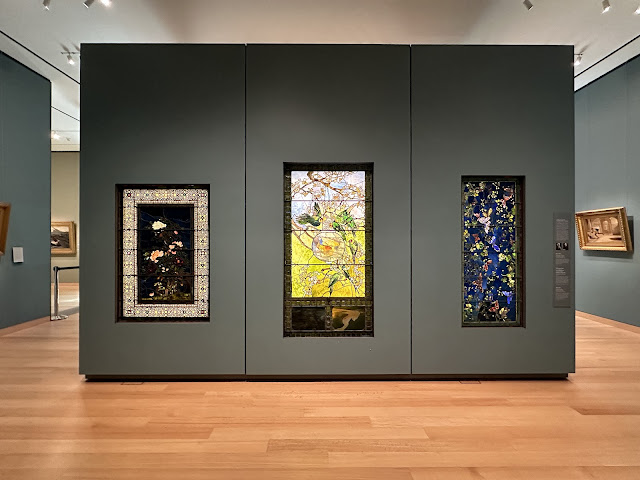I rarely visit Boston without visiting the Museum of Fine Arts.
Cyrus Dallin’s majestic 1912 sculpture, Appeal to the Great Spirit, stands at the museum's Huntington Avenue entrance. I'm kind of tired of modern critics complaining about historic statues that don't embody the values the critics would want if the sculptures were crafted today.
Thomas Sully's Passage of the Delaware shows George Washington on horseback watching his soldiers cross the Delaware River before a surprise attack on Hessian troops at the Battle of Trenton.
I love John Singleton Copley's portrait of Paul Revere, the patriot and silversmith.
Kehinde Wiley's brightly colored portrait of a young Black man posed like a nobleman stands out in a gallery filled with sober classical 18th and 19th century portraits.
Louis Comfort Tiffany's brighter panel is in the center, with John Lafarge's darker stained glass panels on the sides.
The museum wisely places a comfortable bench opposite John Singleton's painting, The Daughters of Edward Darley Boit, so one can sit for a while and admire the work. Two privileged daughters are in the front, while two other sisters stand quietly behind. Beside the rear sisters and at the right of the painting are tall Japanese vases, which the Boit family later donated to the MFA.
The museum shows two Rembrandt portraits, but a panel indicates that some critics believe the painting of the man was done by an apprentice in the school of Rembrandt.
I saw Edgar Degas' Little Dancer at the MFA, as I did at the Clark Art Institute a few days earlier.








3 comments:
If art critics criticize sculptures of the for not living up to modern standards, they are just being ethnocentric and short sighted. It should be easy to ignore them. Thank you for featuring some of the art work at the MFA.
Ah...I've never seen the Sargent in real life. I think it's an odd painting, and interesting. Bigger than I thought. Even though the dimensions can be read in a book or online, seeing the painting in a room makes it even more interesting. Thanks for the photo.
I wonder how many old paintings by Rembrandt, and other artists were painteted by their students.
Post a Comment